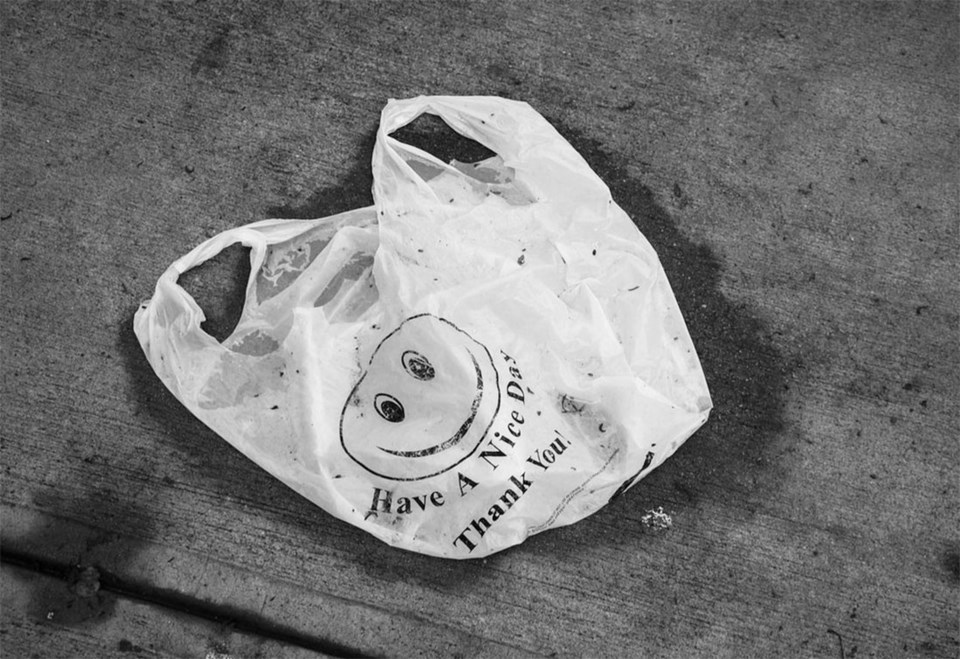The City of Delta’s ban on plastic checkout bags officially goes into effect on Monday, June 6.
City council late last year unanimously approved a new regulation to prohibit single-use plastic bags to customers, although there are several exemptions for items such as meat or frozen food, plants, prepared foods, bulk items, prescription drugs, printed materials, linens and laundry.
Businesses can provide a plastic checkout bag to a customer if the bag has been returned to the business for the purpose of being reused by other customers, according to the city, noting the exception is intended to support charitable organizations and thrift stores who commonly use the practice to cut costs for their customers and reuse materials already in circulation.
Plastic bags may also be sold in packages of multiple bags for use at a customer’s home or business.
The regulation also prohibits prepared food in any food service ware that contains polystyrene foam, but that rule also comes with a few exceptions as well.
After the bylaw’s adoption, Delta businesses were given six months to transition prior to implementation, which begins June 6.
Similar to regulations already in place in other municipalities, Delta’s bylaw also introduces a charge of .25 cents per paper checkout bag and $2 per reusable checkout bag.
Delta city manager Sean McGill told the Optimist that bylaw staff will only act on a complaint basis for at least the rest of this year, not going store-to-store to check on what businesses are doing and handing out fines. The goal is help businesses by educating them on the use of alternatives.
“For bylaws, it’s always about education, so we will actively be educating. That can be our bylaws and/or climate action staff. At some point, we will be going to bylaw infractions as part of the implementation but that will be phase-two. For the most part, it will always be education first,” explained McGill.
He added the city has received positive feedback on the bylaw and the city’s approach.
The Delta bylaw was written to be consistent with bans in other B.C. municipalities, as well as regulations and guidelines developed by the provincial government and Metro Vancouver.
Jill McKnight, executive director of the Delta Chamber of Commerce, said she believes businesses aren’t in opposition to the ban and many have already been preparing. However, the public may not be aware of the new rules retailers will have to follow.
“I know the city is focusing on education but I don’t know if that’s necessarily translated down to the end consumer yet. Come June 6, when a fee could be added to people’s bills, that’s when you could start seeing a bit more of a response. There needs to be patience from everybody because some of the retail workers are the ones who could be getting the negative backlash about this,” she said.
McKnight noted signage for businesses to communicate the new bylaw would be a helpful resource during the period of adjustment.
Michelle Barlow, executive director of the Tsawwassen Business Improvement Association, said she hasn’t heard any specific concerns from member businesses regarding the plastic bag ban, and many local retailers have already switched to an alternate.
Three years ago, a delegation of Seaquam Secondary students requested city council implement a plastic bag ban. At the time, council agreed with a staff recommendation that a bylaw should be harmonious with neighbouring municipalities.
Because the City of Victoria's plastic bag bylaw had been quashed by the BC Court of Appeal, it was also agreed that a province-wide approach was preferred.
The province subsequently gave municipalities the authority to regulate such single-use items, including plastic checkout bags, which enabled Delta to enact its own bylaw without needing provincial approval.




